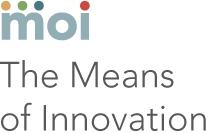Another interesting article in NY Times today. This time focusing on how some doctors are realizing that they are “performing” when providing their services:
What Doctors Can Learn From Musicians
Even more intriguing from my perspective is the following statement from the article:
“Doctors spend much of their energy keeping up with the vast medical knowledge, but scant attention is paid to how this knowledge is dispensed in actual practice, or what Dr. Davidoff would call the performing of medicine.”
This is spot on with my focus on the distinction and interplay between knowledge that (science/episteme) and knowledge how (art/techne). It also supports a central theme of my book that methods employed in the real world are what really matter. Artifacts and propositional knowledge (knowledge that) are instrumentally helpful. But ultimately we need to actually deploy these things in the real world for the betterment of the human condition. Which is not to say that propositional knowledge for its own sake is not valuable (and satisfying). But when we consider the professions as activities aimed at producing effects in the world, we must always focus on the practice rather than the theory or contemplative aspects. This is as true for the “learned” professions of law and medicine as it is for “trade” professions like plumbing and carpentry. All professions have theoretical and propositional knowledge components that are important, but which act instrumentally to the practice and knowledge how (or procedural knowledge) aspects of the field.
The author of the article is more interested in the notion that doctors should have other doctors observe and critique them similar to how music teachers observe and critique their students. I think this is a fine insight as well. It plays into my themes of how most know-how (or “performance”) aspects of methods of practice can really only be conveyed through demonstration and practice. One cannot keep reading books and articles to get better at playing the piano or performing surgery. One simply has to do it. Or, as the author Cassandra Claire summarized the sage advice of experienced writers: “BICHOK: butt in chair, hands on keyboard.” Adapt this to whatever practice area you do and tape it above your workspace. Then, stop yammering about what you could do or would do and just freakin’ do it.

 RSS
RSS Twitter
Twitter
